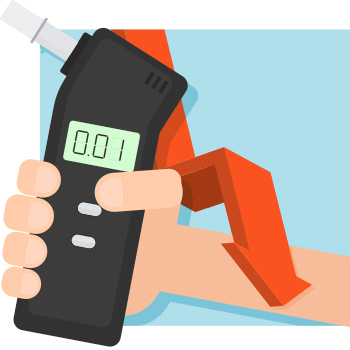
A new study is one of the first to show that requiring all drunk driving offenders to install ignition interlock devices in their cars can significantly reduce fatal drunk driving accidents.
Between 1982 and 2013, states with laws that required all drunk driving offenders to install these devices in their cars experienced a seven percent reduction in fatal drunk driving crashes, according to Ignition Interlock Laws: Effects on Fatal Motor Vehicle Crashes, 1982-2013, a study from Johns Hopkins Bloomberg School of Public Health.
An ignition interlock is a breathalyzer that prevents a car from starting until the driver breathes into it and the device confirms his or her blood alcohol concentration (BAC) is below the legal limit. If the driver’s BAC is above the legal limit, the device prevents the car from starting.
Researchers estimate that ignition interlock devices saved 1,250 lives in states with laws that require these devices to be installed in the cars of drunk drivers after their first offense.
There are 28 states, along with Washington, D.C., that have ignition interlock laws. However, Massachusetts requires these devices only after a second conviction for a drunk driving offense.
Massachusetts and other states with less-strict ignition interlock laws saw a two percent decrease in fatal drunk driving accidents during the study period.
Researchers began studying drunk driving fatalities in states with all-offender ignition interlock laws for five years before the laws were implemented. This allowed them to measure the effect of these laws on impaired driving deaths.
It costs between $70 and $150 to install an ignition interlock and $60 to $80 for ongoing monitoring of the device. By 2013, approximately 305,000 of these devices were installed across the country for drivers with drunk driving convictions.
Did you lose a loved one in a car crash caused by a drunk driver?
Janet, Janet & Suggs car accident attorneys may be able to help you obtain fair compensation for all of the damages you have suffered, including pain and suffering, medical bills, lost companionship, and lost financial support.
Call 1-877-692-3862 or fill out our Free Case Evaluation form.
